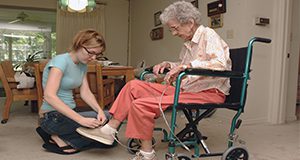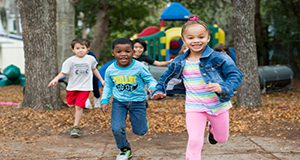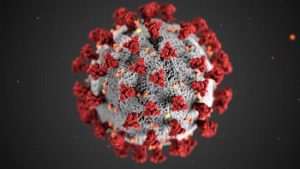¿Me debo preocupar del coronavirus y la comida para llevar?
¿Cuáles son los riesgos con las comida para llevar o de autoservicio?
¿Qué riesgos hay con los alimentos entregados a domicilio?
¿Pudiera contagiarme con el COVID-19 si toco comida o paquetes expuestos al virus?
¿Qué pasa dentro de mi cuerpo si ingiero el coronavirus a través de alimentos?
This is the Spanish language version of FSHN20-21/FS349: COVID-19 and Food Safety FAQ: Is Coronavirus a Concern with Takeout?, written by Natalie Seymour, Mary Yavelak, Candice Christian, and Ben Chapman (NC State University Extension), and published by the UF/IFAS Food Science and Human Nutrition Department.
https://edis.ifas.ufl.edu/fs364
Category: Health & Nutrition
COVID-19 Seguridad de alimentos: Es el coronavirus un problema de seguridad en los alimentos?
¿Es el coronavirus un problema de seguridad en los alimentos?
¿Representa un riesgo de propagación del COVID-19 la comida que viene de otros países y estados afectados por este virus?
¿Es seguro comer en un establecimiento de comida que tenga un empleado infectado con el coronavirus?
¿Podría enfermarme con COVID-19 al tocar alimentos, paquetes de comidas o superficies que han estado en contacto con este virus?
¿Como deben manipularse los alimentos durante la pandemia de COVID-19?
This is the Spanish language translation of FSHN20-18-Span/FS341: COVID-19 and Food Safety FAQ: Is Coronavirus a Food Safety Issue?, written by Natalie Seymour, Mary Yavelak, Candice Christian, and Ben Chapman (NC State University Extension), and published by the UF/IFAS Food Science and Human Nutrition Department.
https://edis.ifas.ufl.edu/fs363
COVID-19 preguntas frecuentes para servicios de comida: limpiando y desinfectando
¿Qué desinfectantes se deben usar?
¿Cómo se deben tratar las superficies?
¿Cómo se deben mantener las áreas de autoservicio?
¿Qué debe hacer si un cliente ha sido diagnosticado con COVID-19?
This is a Spanish language translation of FSHN20-13/FS336: COVID-19 FAQ for Food Service: Cleaning and Disinfection, written by Natalie Seymour, Mary Yavelak, Candice Christian, and Ben Chapman (NC State University Extension), and published by the UF/IFAS Food Science and Human Nutrition Department.
https://edis.ifas.ufl.edu/fs361
COVID-19: preguntas frequentes para huertas comunitarias: pasos para encargados de huertas y jardineros
This is the Spanish language version of FSHN20-19/FS342: COVID-19 FAQ for Community Gardens: Steps for Garden Managers and Gardeners, written by Natalie Seymour, Mary Yavelak, Candice Christian, and Ben Chapman (NC State University Extension), and published by the UF/IFAS Food Science and Human Nutrition Department.
https://edis.ifas.ufl.edu/fs360
COVID-19 preguntas frecuentes para servicios de comida: preguntas generales y salud de los empleados
¿Pudiera Propagarse el COVID-19 a través de los alimentos?
¿Puediera el virus alojarse en el cabello o en la barba?
¿Cuales son las practicas más efectivas que puedo implementar en mi establecimiento?
¿Existe algun procedimiento que deba seguir si un empleado es diagnosticado con COVID-19 o piensa que lo contrajo?
¿Puedo tomarle la temperatura a un empleado que venga a trabajar?
¿Qué sucede si un empleado tiene miedo y no quiere venir a trabajar o servirle a un cliente enfermo? ¿Qué tal si ya usó todos sus días de enfermedad (sick time)?
This is a Spanish language version of COVID-19 FAQ for Food Service: General Questions and Employee Health, written by Natalie Seymour, Mary Yavelak, Candice Christian, and Ben Chapman (NC State University Extension), and published by the UF/IFAS Food Science and Human Nutrition Department.
https://edis.ifas.ufl.edu/fs359
COVID-19 preguntas frecuentes para servicios de comida: recepcion de alimentos y sus empaques
¿Pudiera Propagarse el COVID-19 a través de los alimentos?
¿Es seguro recibir alimentos de estados o paises afectados por COVID-19?
¿Qué sucede si la cadena de suministro de alimentos se interrumpe?
¿Debo limpiar los empaques de alimentos antes de usarlos?
¿Qué debemos utilizar si queremos lavar y desinfectar?
This is a translation of FSHN20-14/FS337: COVID-19 FAQ for Food Service: Receiving and Food Packaging, written by Natalie Seymour, Mary Yavelak, Candice Christian, and Ben Chapman (NC State University Extension), and published by the UF/IFAS Food Science and Human Nutrition Department.
https://edis.ifas.ufl.edu/fs357
Preguntas frecuentes sobre el virus del COVID-19 en supermercados: limpieza y desinfección
¿Qué desinfectantes se deben utilizar?
¿Cómo deben manejarse las superficies y las áreas de auto servicio?
This is a Spanish language translation of FSHN20-09/FS332: COVID-19 FAQ for Grocery Stores: Cleaning and Disinfection, written by Natalie Seymour, Mary Yavelak, Candice Christian, and Ben Chapman (NC State University Extension), translated by Nelly Nelson, and published by the UF/IFAS Food Science and Human Nutrition Department.
https://edis.ifas.ufl.edu/fs356
COVID-19 para Supermercados: Recepción y empaque de alimentos
¿El virus COVID-19 puede transmitirse a través de los alimentos?
¿Es seguro aceptar alimentos de países o estados impactados por el virus COVID-19?
¿Deben limpiarse los paquetes de alimentos antes de usarlos?
Si queremos limpiar y desinfectar, ¿qué debe usarse?
This is the Spanish language version of FSHN20-08-Span/FS331, COVID-19 FAQ for Grocery Stores: Receiving and Food Packaging, written by Natalie Seymour, Mary Yavelak, Candice Christian, and Ben Chapman (NC State University Extension), translated by Liza Garcia-Jimenez, and published by the UF/IFAS Food Science and Human Nutrition Department.
https://edis.ifas.ufl.edu/fs355
Preguntas Frecuentes de COVID-19 para bancos de alimentos: recepción de alimentos y limpieza
¿Se puede propagar el COVID-19 a través de los alimentos?
¿Es seguro aceptar alimentos de países o estados impactados por COVID-19?
¿Deben limpiarse los empaques de alimentos antes de usarlos?
¿Cómo debe manejarse la limpieza y la desinfección?
This is the Spanish language version of FSHN20-7S/FS330, COVID-19 FAQ for Food Banks: Receiving Food and Cleaning, written by Natalie Seymour, Mary Yavelak, Candice Christian, and Ben Chapman (NC State University Extension), translated by Victor Blanco, and published by the UF/IFAS Food Science and Human Nutrition Department.
https://edis.ifas.ufl.edu/fs353
COVID-19 Preventative Measures: Cleaning and Disinfecting Reusable Bags
Current evidence suggests that novel coronavirus may remain viable for hours or days on a variety of surfaces. Cleaning followed by disinfection is recommended by the CDC as a best practice measure for prevention of COVID-19 and other viral respiratory illnesses in households and community settings. This new flyer, published by the UF/IFAS Food Science and Human Nutrition Department and written by Natalie Seymour, Mary Yavelak, Candice Christian, and Ben Chapman (NC State University Extension), provides information on safe cleaning and disinfection of reusable bags.
https://edis.ifas.ufl.edu/fs354
Is Coronavirus an Issue in Produce Production?
CDC, FDA and USDA have no reports at this time of human illnesses that suggest coronavirus can be transmitted by food or food packaging. Research on similar viruses, such as SARS and influenza, show risk of transmission from food is very low. While information on if or how long virus persists on surfaces is minimal, risk of foodborne transmission is low and should not be of concern. This flyer, written by Natalie Seymour, Mary Yavelak, Candice Christian, and Ben Chapman (NC State University Extension), provides answers to some frequently asked questions about coronavirus and produce production. Published by the UF/IFAS Food Science and Human Nutrition Department.
https://edis.ifas.ufl.edu/fs351
Is Coronavirus a Concern on Fresh Produce?
CDC, FDA and USDA are not aware of any reports at this time of human illnesses that suggest
coronavirus can be transmitted by food or food packaging. However, it is always important to
follow good hygiene practices (i.e., wash hands and surfaces often, separate raw meat from other
foods, cook to the right temperature, and refrigerate foods promptly) when handling or preparing foods. This flyer, written by Natalie Seymour, Mary Yavelak, Candice Christian, and Ben Chapman (NC State University Extension), provides answers to some frequently asked questions about coronavirus and fresh produce. Published by the UF/IFAS Food Science and Human Nutrition Department.
https://edis.ifas.ufl.edu/fs350
Pi bon fason pou granmoun (kap pran swen lot moun) lave men yo
Lave men enpòtan pou redwi transfè jèm mikwòb ki soti nan matyè fekal oswa poupou pou ale nan bouch, ki ka lakoz maladi. Timoun piti ak granmoun aje yo gen mwens kapasite pou yo konbat jèm mikwòb pase lòt kategori moun. Kòm moun kap pran swen moun ou ka ede diminye risk maladi ki ka pwopaje nan anviwònman ki gen anpil moun lè w swiv bon jan metòd pou lave men w. This is the Haitian Creole version of FCS8782, Proper Hand Washing for Caregivers. Written by Amy Simonne, translated and reviewed by Emmanuel Jean Claude Duvalsaint and Nicole Monval, and published by the UF/IFAS Department of Family, Youth and Community Sciences, March 2020.
https://edis.ifas.ufl.edu/fy1490
Pi bon fason pou timoun piti (ki gen laj pou ale lekol) lave men yo
Jèm yo ka kache anba zong ki long ak nan men ki sal. Kenbe zong ou kout epi lave men w souvan, se aksyon ki pi enpòtan ou ka poze pou anpeche jèm mikwòb fè w tonbe malad. Jèm ki bay maladi tankou larim, grip, dyare, ak vomisman ka vinn nan men w lè w manyen objè ki nan alantou w. Moun, animal domestik, manje kri, jwèt, tè, ak tout objè nou itilize plizyè fwa pa jou, yo tout ka gen jèm mikwòb sou yo. Lè w lave men w byen li ede retire jèm mikwòb nan men w. This is the Haitian Creole version of FCS8783, Proper Hand Washing for School Children. Written by Amy Simonne, translated and reviewed by Emmanuel Jean Claude Duvalsaint and Nicole Monval, and published by the UF/IFAS Department of Family, Youth and Community Sciences, March 2020.
https://edis.ifas.ufl.edu/fy1491
COVID-19 and Food Safety FAQ: Is Coronavirus a Concern with Takeout?
These flyers, written by Natalie Seymour, Mary Yavelak, Candice Christian, and Ben Chapman (NC State University Extension), provide quick, digestible information regarding prevention of COVID-19 and procedures for food service, grocery stores, and other food-related businesses. This flyer in particular provides guidance regarding takeout and COVID-19. Published by the UF/IFAS Food Science and Human Nutrition Department.
https://edis.ifas.ufl.edu/fs349
COVID-19 and Food Safety FAQ: Is Coronavirus a Concern at Grocery Stores?
These flyers, written by Natalie Seymour, Mary Yavelak, Candice Christian, and Ben Chapman (NC State University Extension), provide quick, digestible information regarding prevention of COVID-19 and procedures for food service, grocery stores, and other food-related businesses. This flyer in particular provides guidance regarding food safety at grocery stores. Published by the UF/IFAS Food Science and Human Nutrition Department.
https://edis.ifas.ufl.edu/fs348
COVID-19 and Food Safety FAQ: Is Coronavirus a Food Safety Issue?
These flyers, written by Natalie Seymour, Mary Yavelak, Candice Christian, and Ben Chapman (NC State University Extension), provide quick, digestible information regarding prevention of COVID-19 and procedures for food service, grocery stores, and other food-related businesses. This flyer in particular provides information about food safety in relation to COVID-19. Published by the UF/IFAS Food Science and Human Nutrition Department.
https://edis.ifas.ufl.edu/fs341
COVID-19 Preventative Measures and FAQs for Food-Related Businesses
These two new series, written by Natalie Seymour, Mary Yavelak, Candice Christian, and Ben Chapman (NC State University Extension), provide quick, digestible information regarding prevention of COVID-19 and procedures for food service, grocery stores, and other food-related businesses. There are 15 flyers total, published by the UF/IFAS Food Science and Human Nutrition Department.
https://edis.ifas.ufl.edu/topic_series_covid-19_faqs
https://edis.ifas.ufl.edu/topic_series_covid-19_preventative_measures
Adecuado lavado de manos para cuidadores
 El lavado de las manos es una forma importante de reducir la transferencia fecal-oral de gérmenes que causan enfermedades. Los niños pequeños y los ancianos con limitaciones tienen menos capacidad para combatir los gérmenes que otras personas. Como cuidador, usted puede ayudar a reducir el riesgo de transmisión de enfermedades en ambientes con multitudes mediante el uso de los adecuados procedimientos de lavado de manos. This is the Spanish language version of Proper Hand Washing for Caregivers (FCS8782Eng/FY724).
El lavado de las manos es una forma importante de reducir la transferencia fecal-oral de gérmenes que causan enfermedades. Los niños pequeños y los ancianos con limitaciones tienen menos capacidad para combatir los gérmenes que otras personas. Como cuidador, usted puede ayudar a reducir el riesgo de transmisión de enfermedades en ambientes con multitudes mediante el uso de los adecuados procedimientos de lavado de manos. This is the Spanish language version of Proper Hand Washing for Caregivers (FCS8782Eng/FY724).
https://edis.ifas.ufl.edu/fy1486
Adecuado lavado de manos para ninos en la escuela
 Los gérmenes pueden esconderse debajo de uñas largas y en manos sucias. Mantener las uñas cortas y lavarse las manos con frecuencia son las cosas más importantes que puedes hacer para evitar que los gérmenes te enfermen. Los gérmenes que causan enfermedades como resfriados, gripe, diarrea y vómitos pueden llegar a tus manos al tocar las cosas a tu alrededor. Las personas, las mascotas, los alimentos crudos, los juguetes, la tierra y los objetos utilizados en nuestra vida diaria pueden tener gérmenes. Lavarte las manos adecuadamente ayuda a eliminar los gérmenes. This is the Spanish language version of Proper Hand Washing for School Children (FCS8783Eng/FY725).
Los gérmenes pueden esconderse debajo de uñas largas y en manos sucias. Mantener las uñas cortas y lavarse las manos con frecuencia son las cosas más importantes que puedes hacer para evitar que los gérmenes te enfermen. Los gérmenes que causan enfermedades como resfriados, gripe, diarrea y vómitos pueden llegar a tus manos al tocar las cosas a tu alrededor. Las personas, las mascotas, los alimentos crudos, los juguetes, la tierra y los objetos utilizados en nuestra vida diaria pueden tener gérmenes. Lavarte las manos adecuadamente ayuda a eliminar los gérmenes. This is the Spanish language version of Proper Hand Washing for School Children (FCS8783Eng/FY725).
https://edis.ifas.ufl.edu/fy1487
